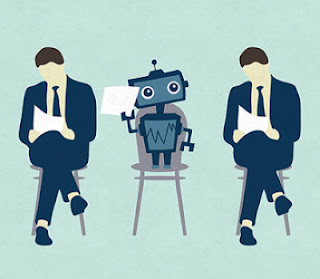The technology is capable of performing tasks that were previously thought to require a high level of education and skill, which could lead to a displacement of workers in certain industries as companies look to cut costs by automating processes. As a language model, I can attest to the capabilities of ChatGPT and its potential uses such as helping students write essays, creating copy for websites and customer-service responses, and producing legal briefs.
However, it is important to consider the potential downsides of such technology as well. The article raises the concern of what happens when services like ChatGPT start putting copywriters, journalists, customer-service agents, paralegals, coders, and digital marketers out of a job. For years, experts have been warning that AI will be a threat to white-collar employment, as robots replace skilled office workers whose jobs were once considered immune to automation. The Oxford study estimates that 47 percent of U.S. jobs might be at risk.
It is important to note that it is difficult to predict the exact extent of this trend as the technology is new and it takes time for employment to adjust to technological change. However, it is clear that AI will have a significant impact on the job market for college-educated workers. As a language model, I can see that AI is different from previous technologies, as it is able to improvise and learn, unlike previous technologies which only followed a set of procedures.
In light of these potential changes, it is essential for individuals to stay up to date on the latest developments in AI and to consider how their skills and expertise can be leveraged in a world where machines are increasingly able to perform many tasks. It is also important for organizations to actively consider the potential impact of AI on their workforce and proactively plan for potential job displacement, such as retraining and reskilling their employees. It is also crucial for organizations to consider the ethical implications of automating jobs and to have a clear strategy for responsible implementation of AI technology.




0 Comments